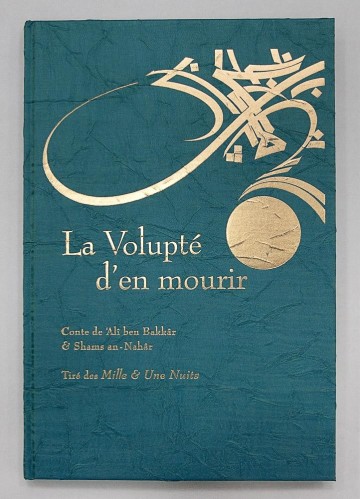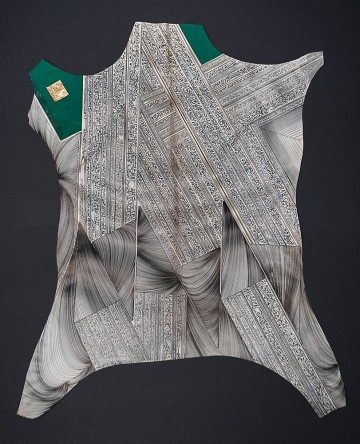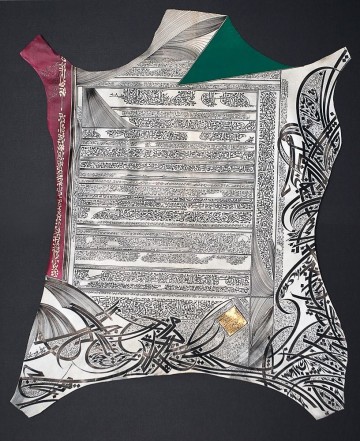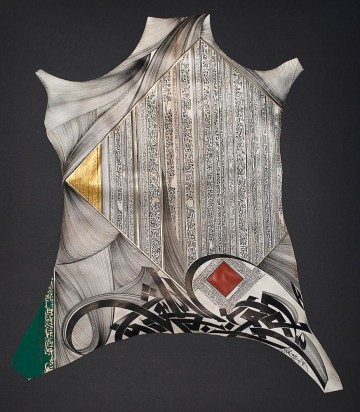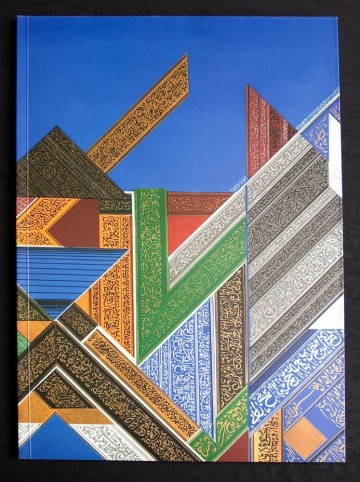恩贾•马哈杜伊
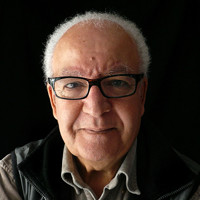
恩贾•马哈杜伊
突尼斯市,突尼斯
书法家,艺术家
Letters and Calligraphy
The use of fragments of letters or symbols in my work is due to my instinctive rejection of the transfiguration of the value of characters.
In calligraphy, written letters acquire a symbolic status which they maintain until they vehicle a significance. But as soon as the letter loses its contours, the reader is bound to resort to his imagination in order to decode and reach the meaning of the word.
With regards to representation and contextualisation, the work is such that it ignores the aesthetic effect of the piece of art. Unconscious reactions and instinctive repulsions are behind this effect. Since time immemorial, this has, in fact, been the essential journey of the visible, material, absolute and well perceived object. Unlike it, the calligraphic letter is an explicitly vocal sound which has lost its capacity to express a contextualized human situation with internal feelings; it explicitly draws a totally subjective image, with concrete content, while disregarding the abstract subject. In my self reflexive approach towards the style and composition of a calligraphic work, I end up subverting the very foundation of calligraphy.
My view is to freely exit the graphic structure of the Arab letters or the verb syntax and the structure of the style. It is because I believe that the final objective is a work of art which materials are meaning-loaded symbols. I have tried to extract the original signification power of these materials in order to achieve an aesthetic of form. While exclusively working on form, regardless of its meaning, I enjoy the freedom of presenting all the combinations that I like. I hope the reader does not remain confined to the visual content but that he rather journeys through a prose in process.
What pervades my work is love. Therefore, if, somehow somewhere, an attempt is made to curb creativity, it would cause me tremendous pain; especially if the path towards artistic creation is shut to one who has been genuinely true. I would greatly suffer if I happened to discover, for example, that a poet is prevented from expressing what lies in the depth of his heart. How little, then, do the causes of conflicts between peoples matter; be they of a commercial, spiritual or cultural nature! To seek letters controlled by the urge to communicate and to contribute to the growth of knowledge, does not just help but it also eases the way forward for feelings. This, we can easily perceive in the history of any state.
Whatever the spiritual, moral, material or cultural level of a state, the spirit owes its freedom from all the historical transformations to the strict and legitimate attitude of the creator. This condition is inherent to the nature of science and philosophy. This phenomenon may be explained by recalling that human memory has only operated through letters bearing meaning acknowledged via the complex process of human individuality and intelligence. Letters are in fact signs, just like the dialogue of science and its whole journey; they contribute to opening and linking cultures.
Our society is constantly changing. And for the purpose of expressing the transformations which take place and in order to give them a perceptible meaning, a powerful word foundation is necessary, capable of working over our image and our spirit. Words may, for example, be logos or logograms as they have the capacity to help feelings hatch, after they have been standardized throughout the world by symbols, representations and the media which are normally devoted to facilitating communication.
Human society aims today at exerting influence on people throughout the world. And this influential power is likely to create activities across national and cultural boundaries. Television is, for this matter, a good example. But so are other means of information such as Internet, CD-Rom, etc. I am thinking of all the new achievements which collect then distribute signs, symbols, image communication, simultaneous interpretation, virtual reality, etc.
